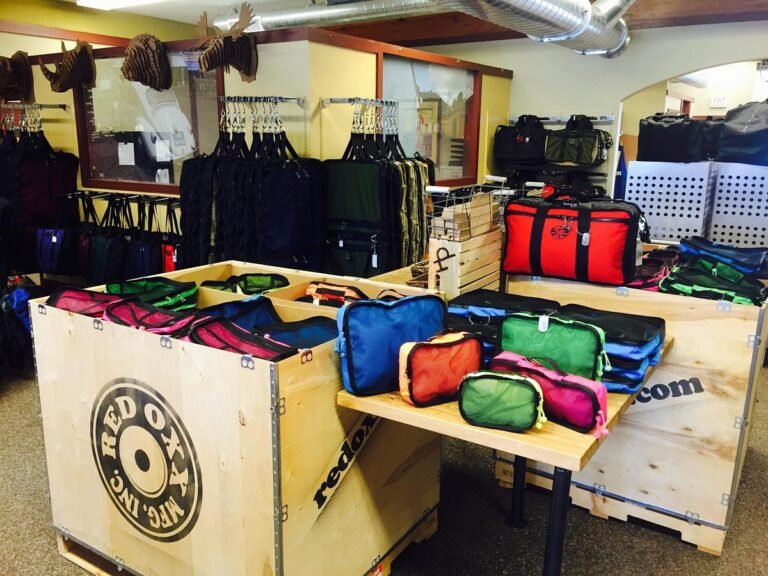Profile
Discover the Textile Heritage Museum Tour in North Carolina
Step back in time to the heart of North Carolina’s textile era at the Textile Heritage Museum in Glencoe Mill Village, Burlington. Housed in the former Glencoe Company Store and administrative offices, this museum preserves and presents the story of the region’s textile industry, with original artifacts, historic looms, knitting machines, photographs, business records, and more.
Visitors walk through exhibits showing how cotton was transformed into fabric, how mills shaped mill-village life, and the economic and social impact of textile manufacturing in the South. Volunteers and docents often operate turn-of-the-century hosiery knitting machines, demonstrate weaving processes, and explain mill operations, giving you a tangible link to the craft and technology of earlier eras. You’ll also walk around Glencoe Mill Village, seeing preserved mill houses, the mill dam, and historic industrial buildings that hint at how a once-thriving mill community lived and worked.
Why it’s special:
This is one of the few places in North Carolina where you can physically visit a textile mill village and see original mill operations in a heritage setting. Instead of modern machines, the museum captures the early techniques, human stories, and community life around textile production—a powerful contrast to today’s factories. For school trips, history buffs, and textile enthusiasts, this tour offers a deep, contextual journey into North Carolina’s industrial roots.
History/Story of Glencoe & the Textile Heritage Museum
Glencoe Mill Village, located along the Haw River in Alamance County, originally housed a cotton mill and supporting community structures in the late 19th century. The Glencoe Company Store and administrative offices (built in 1880) now host the Textile Heritage Museum. Over time, the mill complex expanded, and the village supported workers, families, and operations.
The museum was founded in 2001 to preserve textile artifacts, machinery, and the stories of mill life in North Carolina’s famed textile era. The village’s buildings, mill houses, mill dam, and historic layout remain key to telling that heritage story.
What You’ll See & Do on the Textile Heritage Museum Tour
Explore exhibits in the restored company store and office building, featuring looms, knitting machines, ledgers, artifacts, and textile tools.
Watch volunteer demonstrations of hosiery machines or weaving machines in operation.
Walk through Glencoe Mill Village: mill houses, the mill dam, historic buildings, and restored infrastructure.
Learn about mill operations, the lives of mill workers, and how textile technology evolved.
Visit the museum shop for artifacts, reproductions, and heritage gifts.
Hands-On Elements: Demonstrations of textile machinery, handling fabric samples, opportunities to ask questions of guides and volunteers.
Photo/Video Policy: Photography allowed in the museum and village areas; be respectful of private residences and signage.
Souvenirs & Extras:
Museum gift shop with textile-themed items, books, reproductions
Historic walking trail through mill village grounds
Pricing of Textile Heritage Museum Tour
Admission: Typically free or modest donation-based
Special programs, guided tours, or events may have a small fee
School group tours: may require reservation
Practical Info for Visiting Textile Heritage Museum
Duration: ~1 to 1.5 hours (longer if strolling village and surroundings)
Format: Self-guided or volunteer-led museum tour + walking through village
Schedule & Seasonality: Open most days; check museum hours before visiting.
Audience: Families, school trips, history and textile enthusiasts
Accessibility: Museum area is in historic buildings (some areas may have uneven floors); village walkways outdoors
Safety & Restrictions:
Be cautious walking around historic structures
Some village areas may be residential or privately owned
Languages: English; signage and exhibits in museum
Group & School Visits: Advance notification recommended for groups
What to Bring/Wear: Comfortable walking shoes, camera, interest in history
Facilities: Restrooms, museum shop, parking
Closures & Downtime: Closed on major holidays; sometimes affected by restoration or events
Location & Booking
Getting There: Off I-40/I-85 corridor in Alamance County; free visitor parking available
Booking: Walk-ins welcome; group tours should contact museum in advance
Cancellation & Refunds: Not applicable (heritage museum)
On-Site Extras: Historic walking trails, village exploration, local educational events
Nearby
Haw River Trail & Haw River
Alamance Artisans and local craft shops
Downtown Burlington attractions
FAQs About Visiting the Textile Heritage Museum
Do I see modern textile manufacturing?
No — this is a heritage tour, focusing on historical textile technology and mill village life, not current factory operations.
Is there a fee to visit?
Admission is generally free or by donation; special events may carry small fees.
Can I see machinery working?
Yes — volunteer demonstrations of historic hosiery or weaving machines occur periodically.
How long should I allow?
Plan for 1 to 1.5 hours to tour exhibits and walk village grounds.
Is the museum suitable for kids and school groups?
Yes — students benefit from seeing early industrial history, machines, and worker life.
Can I photograph inside?
Yes, photography is allowed in museum and village areas, with respect to historic structures.
Map
Sorry, no records were found. Please adjust your search criteria and try again.
Sorry, unable to load the Maps API.




